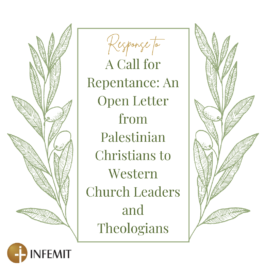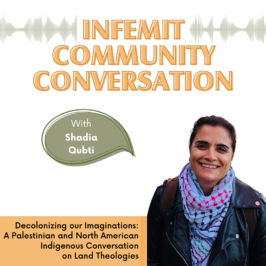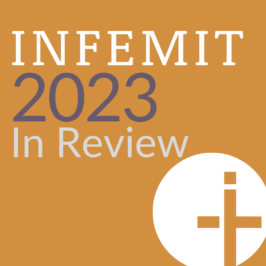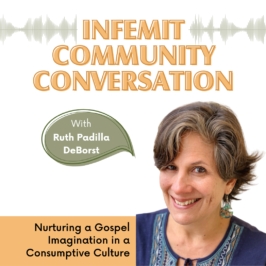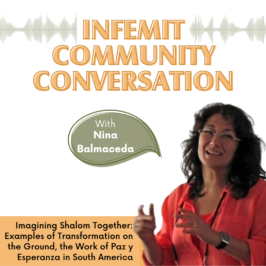2016 Stott-Bediako Forum
The Refugee Crisis: A Shared Human Condition
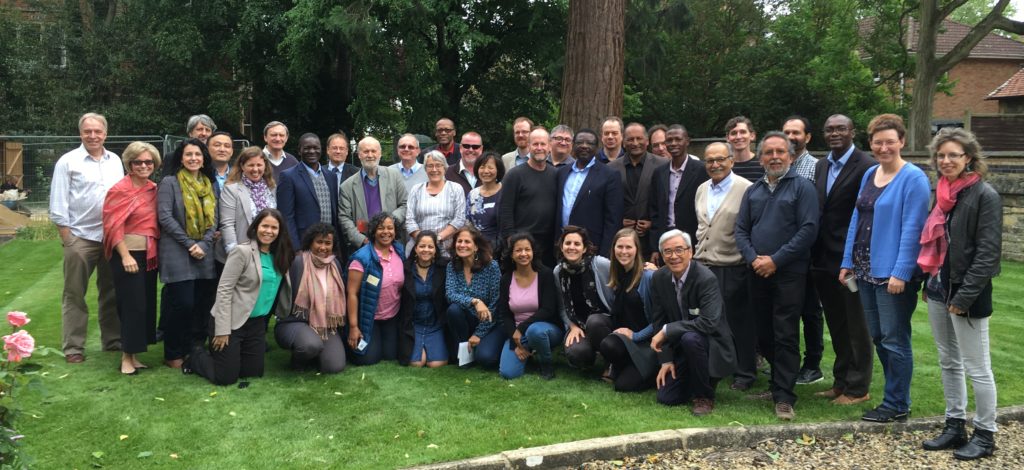
The Stott-Bediako Forum is an annual gathering of theologian-practitioners who are committed to address the realities of the contemporary world in light of the Gospel. Named after John W.R. Stott and Kwame Bediako, the Forum promotes a holistic understanding of mission and the importance of constructive engagements of Christianity and culture. The Forum is sponsored jointly by the International Fellowship for Mission as Transformation (INFEMIT) and the Oxford Centre for Mission Studies (OCMS).
This year, the Stott-Bediako Forum focused on the topic: The Refugee Crisis: A Shared Human Condition. It took place at the Oxford Centre for Mission Studies (OCMS), UK on the 13th and 14th of June, 2016.
One response quickly emerged from our meetings and discussions on this urgent topic: a cry of lament. Our forum itself bore the mark of harsh policies toward migration and visa granting, which inhibited one of our main speakers, two of the INFEMIT Networking Team members, and numerous participants from attending. Our first panel on “The Church and Refugees,” was held partially over webcam as we attempted to incorporate Reverend Mathew Jock Moses, a refugee from South Sudan now living in Ethiopia, who serves as the President of the Evangelical Covenant Church of South Sudan and Ethiopia. Later on during the same day, INFEMIT Networking Team member Al Tizon led participants through a time of reflection and lament as we considered the gravity of the challenges faced by our brothers and sisters seeking refuge in the world today.
Presentations during the Forum encouraged participants to consider multiple aspects of the reality faced by refugees. Chris Wright presented an Old Testament Theological Basis which examined the Hebrew law to show God’s overwhelming concern for foreigners in Israel, and in fact, how the refugee experience is part of the “theological and historical DNA as God’s people ever since Abraham.” Samuel Escobar presented a New Testament Theological Basis, exploring the final chapter of Romans to recognize the diversity and cross-cultural challenges ever-present in the Church, urging us toward mutual acceptance and unity.
The panel on “The Church and Refugees” featured speakers Mathew Jock Moses, on The Ongoing Refugee Crisis and the Church Responses in the context of South Sudan and Ethiopia; Myrto Theocharous, on Refugee Asylum: Deuteronomy’s “Disobedient” Law; and Sheryl Haw, on Re thinking the Church in the Context of Refugees and Migrants.
The panel “A Theology for Refugees” included speakers Rolf Zwick, on Refugee Theology from the perspective of a pastor and an activist; and Marcel Măcelaru, on Theology and Refugees.
Topical presentations included Nadia Khouri Accad, on A Critical Reflection on our Responses to the Syrian Crisis: Attitudes, Labels, and a Parable; María Alejandra Andrade, on Spirituality and the Resilience of Refugee Children; and Caroline Powell, on Seeking Rest: Reflection on Ruth from the Church in a Divided South African City.
On the second day of the forum, participants were able to gather into groups focusing on two geographical areas, guided by case studies gathered by Fabio Salguero and Samuel Escobar (Latin America), Rolf Zwick and Marcel Măcelaru (Europe). These interactive times allowed for questions and discussion on challenges in each region.
Finally, and crucial to this Forum, were times spent in small and large group dialogue and prayer. Again, various guiding themes emerged: the recognition that we are all migrants and a new language is needed to speak about our neighbors seeking refuge among us; our churches and our communities are enriched by the participation of migrants, who bring diverse backgrounds and experiences; and we must incorporate redemptive memory – understanding that our Church and our countries were formed by migrants.
These themes and the relationships built over the course of the Forum propel us forward into further questions, reflections, and responses. We agree that a response is needed: a call to action for our home communities and the global Church. This is no easy task, and our response must emerge from continued discussion guided by the reflective practice of the Church.
We wish to thank all who attended and enriched this year’s Stott-Bediako Forum with their participation. We also thank all speakers and facilitators for their incredible work, our hosts at OCMS for their hospitality, and those who made the event possible through their sponsorship.
Over the next few weeks, audio files of the presentations will be featured on INFEMIT’s website (not all presentations were able to be recorded). INFEMIT is working on publishing the papers presented in a volume, but these will also be made available for a limited time for free on our website. Finally, we may announce that the 2017 Stott-Bediako Forum will be held in Ghana, alongside our partners at Akrofi-Christaller Institute of Theology (Date TBD).
